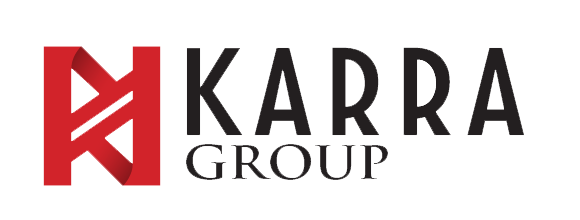- A Continent in Flux: Navigating the critical global news updates and reshaping international dynamics.
- Geopolitical Shifts and Power Dynamics
- The Impact of Economic Interdependence
- Technological Advancements and the Information Age
- The Rise of Misinformation and Disinformation
- Environmental Challenges and Climate Change
- The Role of International Cooperation
- The Future of Global Governance
A Continent in Flux: Navigating the critical global news updates and reshaping international dynamics.
The global landscape is in constant transformation, and staying informed about current events is more critical than ever. Access to reliable and timely information, often referred to as international reporting, allows individuals and policymakers alike to understand the complexities of our interconnected world. Discerning accurate reporting from misinformation is paramount in navigating this evolving environment, making the diligent pursuit of verified news essential for informed decision-making and responsible global citizenship.
Geopolitical Shifts and Power Dynamics
The world order is undergoing a significant rebalancing, with traditional power structures challenged by emerging nations and new alliances. The rise of economic powers like China and India, coupled with shifts in military capabilities, are reshaping geopolitical dynamics. These changes necessitate a keen understanding of international relations, economic interdependence, and the evolving role of international organizations. The current climate is marked by increased competition for resources, technological advancements, and the proliferation of security concerns.
Furthermore, domestic political instability in several key nations presents a ripple effect on the global stage. Internal conflicts, economic crises, and social unrest can quickly escalate, triggering regional instability and potentially leading to broader international repercussions. Careful monitoring of these internal dynamics is crucial for predicting and mitigating potential global shocks.
The Impact of Economic Interdependence
Globalization has fostered an unprecedented level of economic interdependence, where the actions of one nation can have profound consequences for others. Supply chains crisscross the globe, making nations reliant on each other for essential goods and services. This interdependence, while fostering economic growth, also creates vulnerabilities. Disruptions to supply chains, such as those experienced during the COVID-19 pandemic, can lead to economic slowdowns and price volatility. Understanding the intricacies of global trade, investment flows, and financial markets is therefore vital for economic stability and sustainable development. Trade wars, protectionist policies, and currency fluctuations all contribute to a complex economic landscape.
Moreover, the increasing prominence of multinational corporations wields significant influence over global economic policies and practices. These corporations operate across borders, influencing labor standards, environmental regulations, and tax policies. The interplay between national governments and multinational corporations is a defining feature of the modern global economy.
| United States | 27.36 | 2.5 |
| China | 17.70 | 5.2 |
| Germany | 4.43 | -0.3 |
| Japan | 4.23 | 1.9 |
Technological Advancements and the Information Age
Rapid technological advancements are transforming nearly every aspect of modern life, from communication and transportation to healthcare and education. The proliferation of the internet and mobile devices has created a hyper-connected world, where information spreads instantaneously. This has democratized access to information but also created new challenges, such as the spread of misinformation and the erosion of privacy. Artificial intelligence (AI), machine learning, and big data are driving further innovation, with potentially transformative implications for the future. Ensuring responsible development and deployment of these technologies is essential for maximizing benefits and minimizing risks.
The digital divide – the gap between those who have access to technology and those who do not – remains a significant challenge. Bridging this gap is crucial for ensuring equitable access to opportunities and promoting inclusive growth. Investment in digital infrastructure, education, and skills development is essential for addressing this disparity.
The Rise of Misinformation and Disinformation
The ease with which information can be created and disseminated online has led to a surge in misinformation and disinformation. Fake news, propaganda, and malicious narratives can spread rapidly through social media platforms, influencing public opinion and eroding trust in institutions. This phenomenon poses a serious threat to democratic processes and social cohesion. Combating misinformation requires a multi-faceted approach, including media literacy education, fact-checking initiatives, and algorithmic transparency. Platforms need to take greater responsibility for the content they host and implement effective measures to identify and remove harmful content, while respecting the principles of free speech.
The influence of foreign interference in elections and political processes through the spread of disinformation is a growing concern. Nation-states are increasingly using cyberattacks and social media manipulation to undermine democratic institutions and sow discord. Strengthening cybersecurity defenses and enhancing international cooperation are vital for countering these threats.
- Critical Thinking: Evaluating sources and information.
- Media Literacy: Understanding how media operates.
- Fact-Checking: Verifying information before sharing.
- Algorithmic Transparency: Understanding how algorithms shape information exposure.
Environmental Challenges and Climate Change
Climate change is arguably the most pressing global challenge of our time, with far-reaching consequences for the planet and its inhabitants. Rising temperatures, extreme weather events, sea-level rise, and biodiversity loss are already being felt around the world. Addressing climate change requires a concerted global effort to reduce greenhouse gas emissions, transition to sustainable energy sources, and adapt to the impacts of climate change. International agreements, such as the Paris Agreement, provide a framework for collective action, but achieving meaningful progress requires ambitious commitments and effective implementation.
Beyond climate change, other environmental challenges, such as deforestation, pollution, and resource depletion, pose significant threats to ecosystems and human well-being. Sustainable resource management, conservation efforts, and responsible consumption patterns are essential for protecting the planet for future generations.
The Role of International Cooperation
Addressing global challenges effectively requires international cooperation and multilateralism. No single nation can solve these problems alone. International organizations, such as the United Nations, the World Trade Organization, and the International Monetary Fund, play a crucial role in facilitating cooperation, providing a platform for dialogue, and coordinating efforts to address common challenges. However, the effectiveness of these organizations is often hampered by political disagreements and a lack of enforcement mechanisms. Strengthening international institutions and fostering a spirit of collective responsibility are essential for building a more sustainable and equitable world. The influence of individual nations, however, remains paramount to initiating and supporting such global efforts.
Furthermore, addressing global inequality is crucial. Disparities in wealth, access to resources, and opportunities contribute to instability and conflict, hindering progress on other fronts. Promoting inclusive economic growth, investing in education and healthcare, and empowering marginalized communities are essential for creating a more just and peaceful world.
| Carbon Dioxide (CO2) | 36,800 | Fossil Fuel Combustion, Deforestation |
| Methane (CH4) | 6,000 | Agriculture, Natural Gas Leaks |
| Nitrous Oxide (N2O) | 400 | Agriculture, Industrial Processes |
The Future of Global Governance
The existing system of global governance is facing increasing scrutiny and challenges. The rise of nationalism, populism, and protectionism threatens to undermine international cooperation and multilateralism. The need for reform is widely recognized, but finding consensus on the way forward is proving difficult. exploring new models of global governance that are more inclusive, transparent, and accountable is essential for addressing the complex challenges of the 21st century.
The role of non-state actors, such as civil society organizations, NGOs, and the private sector, is becoming increasingly important in global governance. These actors can play a crucial role in advocating for change, providing assistance to those in need, and promoting sustainable development. Fostering greater collaboration between state and non-state actors can enhance the effectiveness of global governance.
- Strengthen International Institutions: Enhance effectiveness and accountability.
- Promote Multilateralism: Foster cooperation and dialogue.
- Address Global Inequality: Promote inclusive growth and equitable access to resources.
- Invest in Sustainable Development: Prioritize environmental protection and responsible resource management.
- Embrace Technological Innovation: Harness technology for the benefit of all.
Navigating the current global situation requires a nuanced understanding of interconnected challenges. A commitment to evidence-based decision-making, international collaboration, and a focus on long-term sustainability are paramount. Promoting resilient systems, fostering adaptability, and investing in a more informed and equitable future are crucial steps toward navigating an increasingly complex world.

